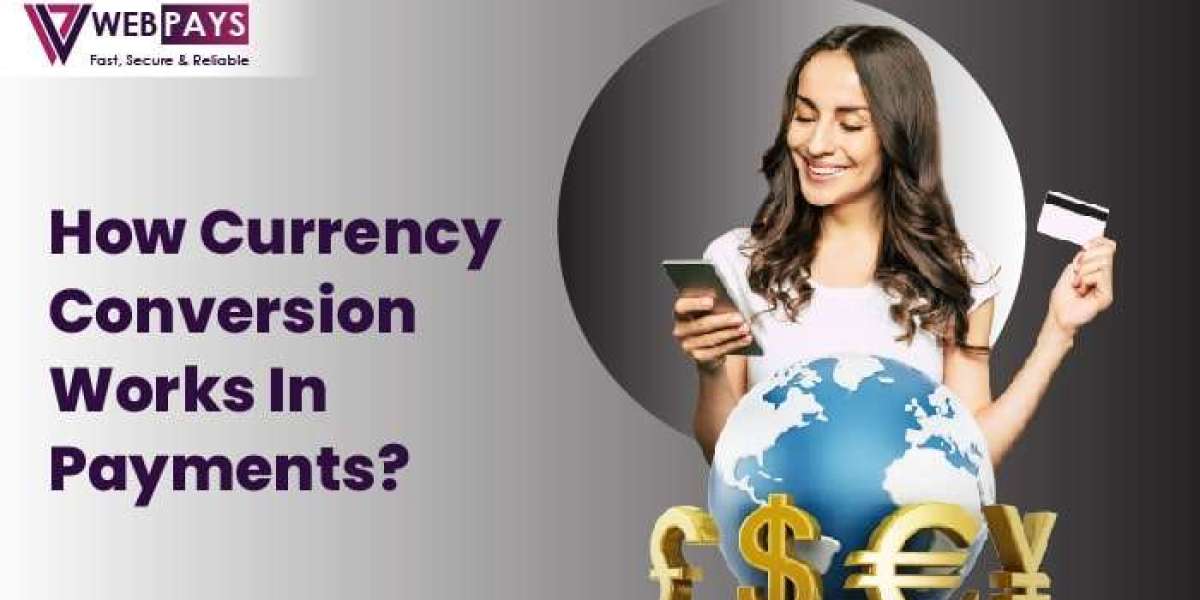In the world of global transactions, currency conversion is super important. It's all about changing the value of one currency into another during payments. This helps people and businesses from different countries buy and sell stuff without any hassle. Knowing how currency conversion works is a big deal for everyone and grasping the process of currency conversion is beneficial to leverage the potential of credit card payment processing for their needs & requirements.
If businesses do not get it right, they might end up paying more than they expected. And for consumers, it could mean getting charged extra fees or not getting a fair deal on exchange rates. In this article, we will dive into the currency conversion process, why it matters so much in today's global economy, and why both businesses and consumers need to understand how it works.
Overview of How Currency Conversion Works in Payment Transactions:
Currency conversion in payment transactions involves several steps. When a payment is made in a currency different from the merchant's local currency, the payment processor or financial institution handling the transaction converts the amount using the current exchange rate. This rate is typically based on real-time market rates or predetermined rates set by the institution. The converted amount is then debited from the payer's account and credited to the payee's account in their local currency.
Explanation of Conversion Fees And Charges:
Currency conversion may incur fees and charges imposed by payment processors or financial institutions. These fees typically include conversion fees, which are a percentage of the transaction amount, and may also include additional charges such as foreign exchange markup fees. Additionally, some institutions may offer dynamic currency conversion services, allowing customers to pay in their home currency but often at a less favorable exchange rate. It's essential for businesses and consumers to be aware of these fees and charges to understand the true cost of cross-border transactions.
The Key Players Involved in Currency Conversion:
Understanding the roles of these key players is crucial for navigating currency conversion:
You (the Customer): As the initiator of the transaction, you are ultimately responsible for the final payment amount, including any conversion fees.
The Merchant: The business accepting your payment operates in a specific currency (their settlement currency). They may choose to set their own exchange rate or rely on the card network's rate.
Your Bank or Card Issuer: This is the financial institution that issued your credit card or debit card. They play a crucial role in processing the transaction and may:
The Card Network (Visa, Mastercard, etc.): These global payment networks facilitate communication between merchants and banks. They also offer Their Own Exchange Rate: If the merchant does not set a rate, the card network applies its own exchange rate for the conversion.
How Does The Process of Currency Conversion Happen?
Understanding the currency conversion process is key to navigating international transactions. Therefore, let’s get it by an easy example below:
Let’s assume that you purchase in a foreign currency (let's say Euros) at a souvenir shop (the merchant). Their settlement currency might be a different one, like US Dollars (USD).
Merchant's Choice: Some merchants set their exchange rates. This rate might not be the most favorable, and they may add a conversion fee on top. For example, the shop might offer a Euro to USD conversion rate slightly higher than the current market rate and add a 2% conversion fee.
Merchant-Set Rate Conversion (Example): Let's say you buy a €10 souvenir.
Applying the merchant's rate (e.g., €1 = $1.10) and conversion fee (2%):
Euro conversion: €10 x $1.10/€ = $11.00
Conversion fee: $11.00 x 2% = $0.22
Final amount: You will pay approximately $11.22 (subject to rounding).
Card Network Rate as an Alternative: If the merchant does not set a rate, the card network you use (Visa, Mastercard, etc.) applies its own exchange rate. This rate is usually more competitive than merchant-set rates, but there might still be a small conversion fee from your bank (Foreign Transaction Fee - FTF).
Card Network Rate Conversion (Example): Using the same €10 souvenir purchase:
The card network rate might be €1 = $1.08 (more favorable than the merchant's rate).
Assuming your bank charges a 1% FTF:
Euro conversion: €10 x $1.08/€ = $10.80
Foreign Transaction Fee: $10.80 x 1% = $0.11
Final amount: You will see a charge of approximately $10.91 (subject to rounding) on your bank statement.
Note: It's crucial to be aware of the exchange rate and any potential fees before finalizing a purchase.
Role of Payment Processors And Financial Institutions:
Payment processors and financial institutions play a crucial role in facilitating currency conversion. They provide the infrastructure and systems necessary to execute transactions across different currencies. Payment processors often collaborate with banks or currency exchange providers to access exchange rates and perform the conversion process seamlessly. Additionally, they may offer currency conversion services as part of their payment processing solutions, allowing merchants to accept payments in multiple currencies.
Conclusion:
Currency conversion is vital for global transactions, impacting both businesses and consumers. By understanding the process, businesses can ensure accurate pricing and avoid unexpected expenses, enhancing their relationships with customers. Similarly, consumers benefit from awareness of potential fees and charges, allowing them to make informed decisions when making international purchases. With this knowledge, businesses and consumers can navigate currency conversion confidently, leveraging the best credit card payment companies and optimizing credit card payment processing for their needs.



